Wouldn’t it be great if you could easily slip into a deep, restful sleep when you go to bed? Melatonin is a supplement that promises just that: an easy, natural, safe, and effective way to improve your sleep length and sleep quality.
Melatonin is a natural hormone produced by your body that helps induce sleep, but some people with trouble sleeping have dysregulated melatonin levels. A supplement can help correct this problem.
Here are the best melatonin supplements on the market, ranked. Afterwards, we’ll dive into the details of how melatonin works and what it can do for you.
Research
Rankings
1. VitaBalance Nature Sleep
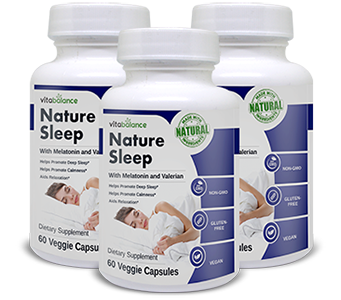
Click here for the lowest price
If you’re tired of tossing and turning all night every night, look no further than VitaBalance Nature Sleep.
More than a third of adults in the US don’t get enough sleep. Trouble is, lack of sleep (or poor sleep quality) does more than hurt your ability to be productive at work. It can cause anxiety, poor memory, heart and blood pressure problems, moodiness, and even weight gain. (Yes, some of those extra pounds could be the result of not getting a good night’s sleep on a regular basis!)
That’s why we love Nature Sleep. It’s a relaxing blend of melatonin, valerian, and chamomile—all known for their sleep-inducing properties—plus three lesser-known sleep aids: magnesium, goji berry, and lemon balm.
The result?
Your mind can actually relax, letting go of all the day’s stresses, easing you into a deep sleep, and keeping you there till morning.
So you can wake up refreshed, ready to hit the day running.
All natural. Gluten-free. Manufactured in an FDA-registered facility that follows GMP guidelines.
The all-around sleep aid winner of 2021.
Click here for the lowest price
2. Performance Lab Sleep
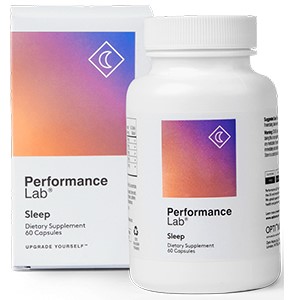
Click here for the lowest price
Performance Lab Sleep is more than just a melatonin supplement. It’s designed for performance. It’s designed to soothe aching joints and muscles, enhance cell renewal, and extend the regenerative phases of sleep.
It does this by providing you with a medley of natural ingredients proven to help sleep and body recovery. This includes three different forms of magnesium for maximum bio-availability and L-Tryptophan to reduce stress and increase relaxation. On top of this, Performance Lab sleep uses the richest form of natural melatonin, Montmorency tart cherry, which also supplies anti-oxidants and anti-inflammatory properties.
Performance lab sleep is clean, 100% natural, non-GMO, gluten-free, and vegan-friendly. It will keep you active longer in the day by making sure you’re fast asleep at night.
3. Physicians Choice NATREM Sleep Aid
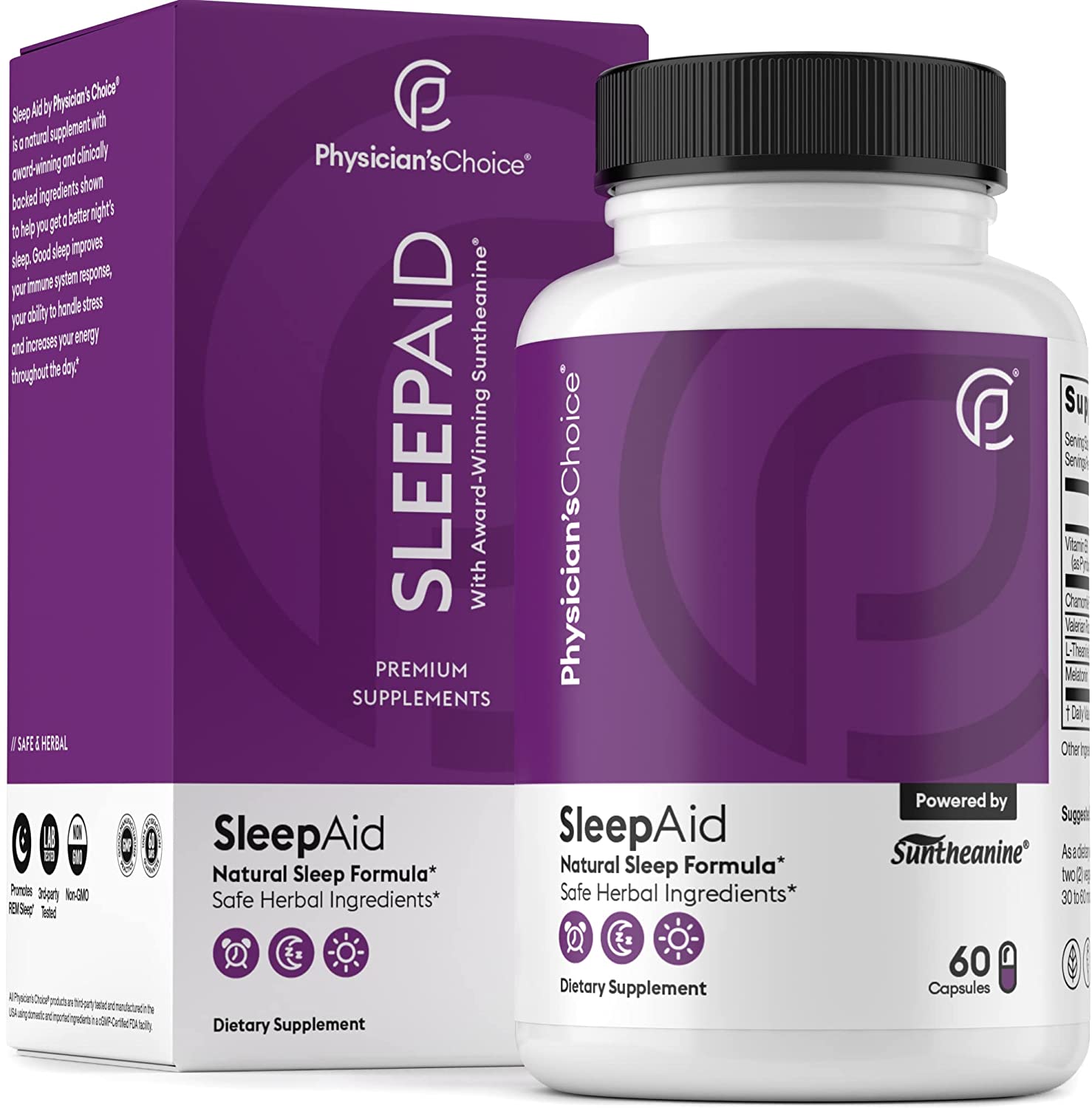
If you’re looking for a melatonin sleep aid with a little extra “boost” then Physicians Choice NATREM is our top pick.
NATREM uses clinically proven and patented Suntheanine® in which the national institute of mental health did a clinical trial and found that when taken before bed it produces a significant improvement in sleep quality.
NATREM uses 5mg of melatonin combined with valerian root powder, Suntheanine ®, Chamomile, and Pyridoxal-5-Phosphate (P5P).
NATREM isn’t the cheapest melatonin sleep aid out there, but it’s certainly one of the best.
4. Nature Made Melatonin
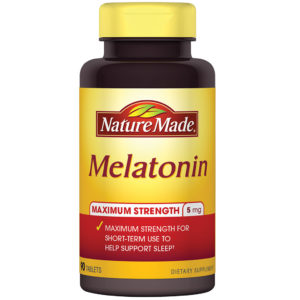
Chalk this one up as simple and straightforward. With Nature Made being a well-known brand, you know you’re not going to get anything fancy, but in this case, simple might be exactly what you’re looking for.
The Nature Made Melatonin offering supplies a moderate 3 mg of melatonin per tablet. Given how cost effective this supplement is, if you need a higher dosage, you might as well just take two instead of look for a supplement with a higher per-tablet dose.
The melatonin is bound up in dibasic calcium phosphate, sodium starch glycolate, and magnesium stearate; all of these are fairly common tablet constituents.
5. Puritan’s Pride Premium Super Strength Melatonin
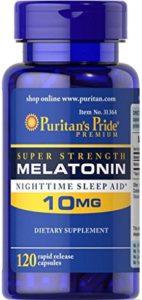
This melatonin supplement is high powered and minimalist. Each capsule delivers a hefty 10 mg of melatonin per capsule, so if lower doses of melatonin aren’t working for you, Puritan’s Pride might be just what it takes.
If you know that high doses of melatonin are what you need when you can’t fall asleep, it might be easier to opt for a high dosage supplement like Puritan’s Pride instead of taking several lower capacity melatonin supplements at once.
6. Nature’s Bounty Melatonin
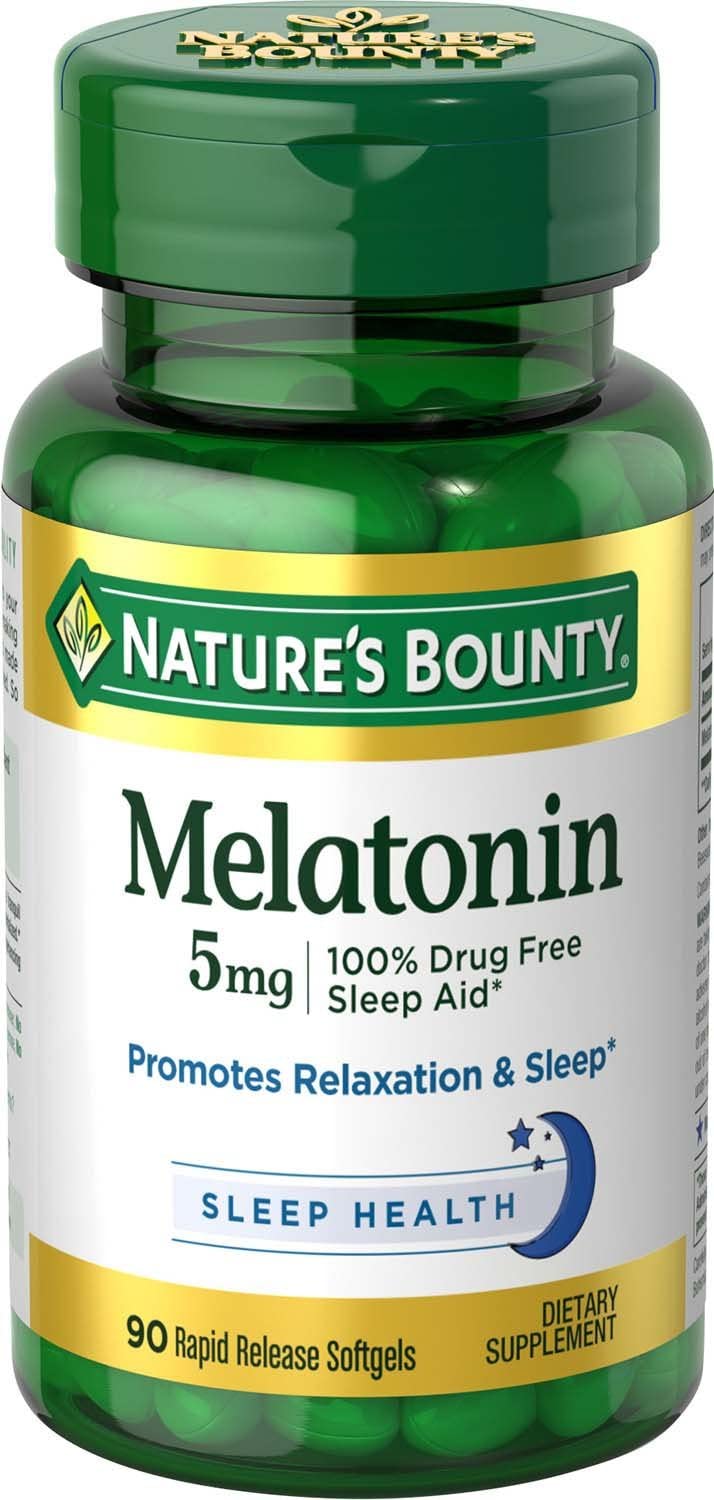
Each softgel of Nature’s Bounty contains 5 mg of melatonin, which is on the higher end of dosages. The softgel formulation does mean there are a few more ingredients than usual. The gel capsule and the liquid it contains are made up of soybean oil, gelatin, glycerin, beeswax, soy lecithin, and titanium dioxide.
This doesn’t mean much for most people, but if you can’t eat soy, or if you are vegetarian or vegan, you’ll want to look elsewhere. If you want a medium dose of melatonin and want it to take effect rapidly, Nature’s Bounty Triple Strength might be the supplement for you.
7. Zarbee’s Naturals Melatonin Gummies
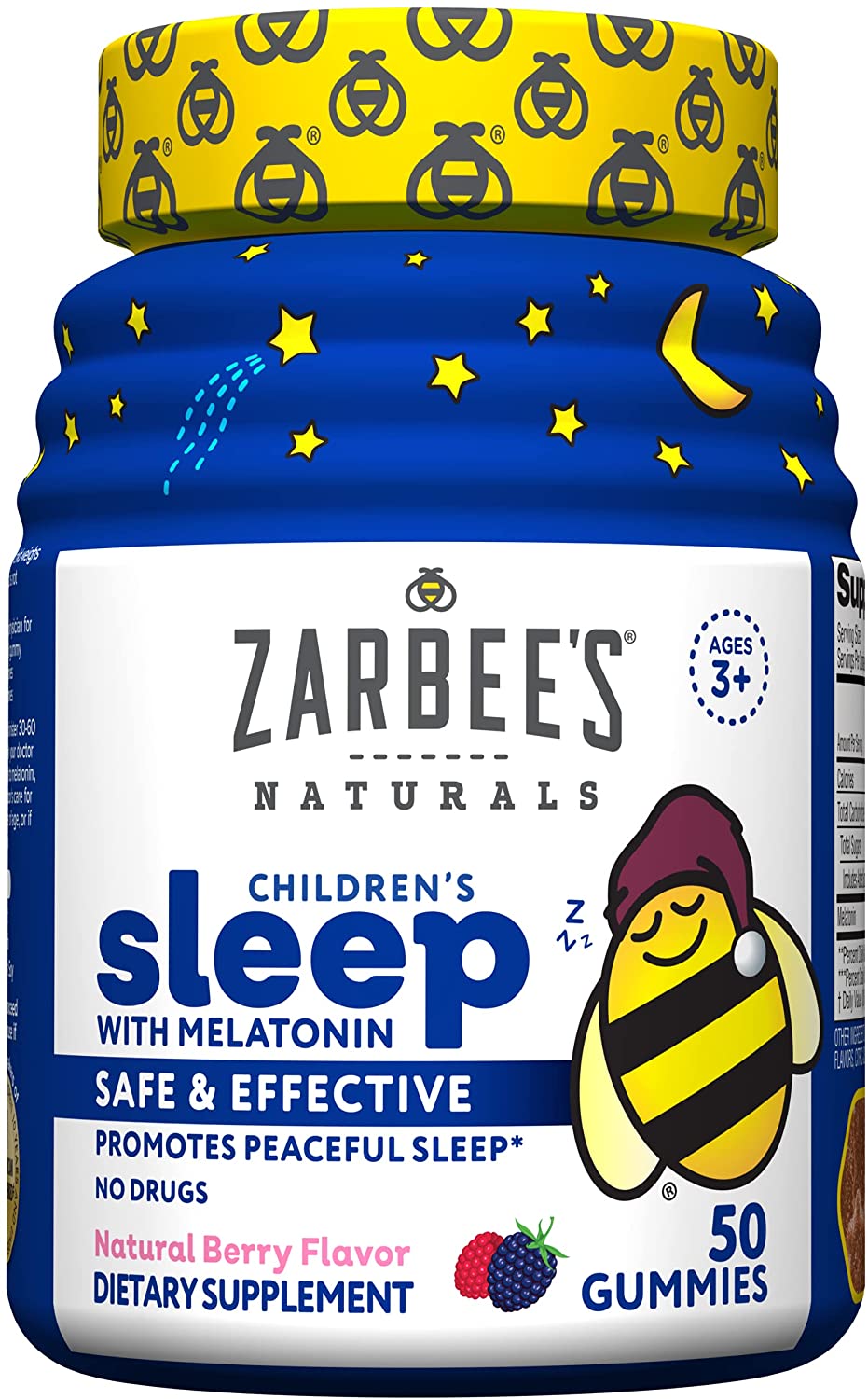
Zarbee’s Naturals provides melatonin in just the right dose for kids: one milligram of melatonin per gummy, and unlike many of their competitors, these gummies are all-natural and have no artificial flavoring or coloring.
If a gummy-form melatonin supplement is what you need, look no further than Zarbee’s.
8. Now Foods Melatonin
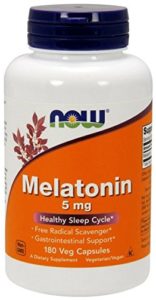
This melatonin supplement is a solid middle-of-the-road choice for delivering a reasonable dose of melatonin in a cheap and efficient way. It provides 5 mg of melatonin per tablet, according to the label, and it’s got no extraneous or gimmicky ingredients.
9. Best Naturals Melatonin
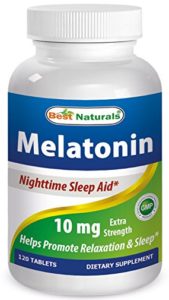
Best Naturals Melatonin is a high-dose melatonin supplement, delivering 10 mg per tablet. The other ingredients are unremarkable, just your usual mixture of tablet binders and stabilizers.
10. Now Foods Liquid Melatonin
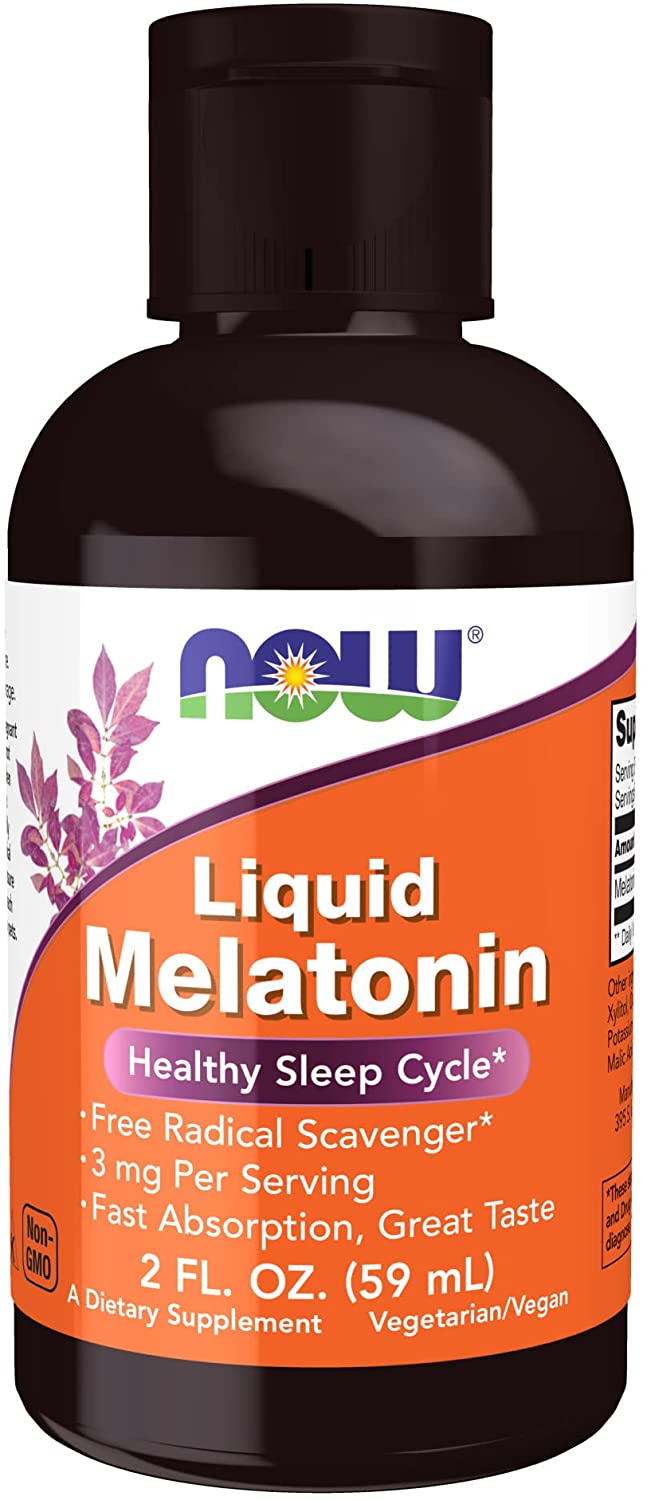
Though Now Foods also makes a standard tablet based melatonin supplement, it also offers a liquid version of the same supplement. Each serving contains 3 mg of melatonin dissolved in water, glycerin, and ethyl alcohol, along with some flavoring and sweetening agents.
For most people, a tablet or capsule will be the best choice. A liquid supplement version of melatonin might be a good call if you dislike or have difficulty swallowing pills—for just about anybody else, the extra cost, lessened dosage accuracy, and inconvenience aren’t worth it.
Category winners
Best melatonin overall: VitaBalance Nature Sleep
VitaBalance Nature Sleep combines melatonin with magnesium, vitamin B6, and a wide-ranging blend of herbal extracts, including St. John’s wort, ashwagandha, and passion flower, to name just a few. This broad-spectrum blend of herbal extracts that compliments the melatonin makes VitaBalance Nature Sleep our top pick.
Best melatonin for staying asleep: Performance Lab Sleep
Melatonin can help both with falling asleep and staying asleep–for this second use case, we recommend Performance Lab Sleep thanks to its combination of magnesium, L-tryptophan, and tart cherry-derived melatonin. These ingredients help sustain sleep throughout the night, making it a good pick for restless sleepers.
Best melatonin for getting over jet lag: Performance Lab Sleep
Need to reset your biological clock after a long flight? Performance Lab Sleep does a great job with a simple, straightforward formulation that leans on the abilities of melatonin, magnesium, and L-tryptophan to modulate your circadian rhythm. Taken about an hour before bedtime in your new time zone, it’s a great way to speed your recovery from jet lag.
Best melatonin for kids: Zarbee’s Naturals Melatonin Gummies
Zarbee’s Naturals Melatonin Gummies are great for kids who need melatonin–their great taste makes them go down easy, and the lower dose is appropriate for kids, who need less melatonin to fall asleep than adults. The fact that they’re free of artificial flavors and colors is an added bonus.
Best melatonin with magnesium: Performance Lab Sleep
Performance Lab Sleep combines melatonin with magnesium, plus two other powerful sleep aids: tart cherry and L-tryptophan. Magnesium’s synergistic effects with melatonin are helped in this supplement by the high dosage and highly available form of magnesium used in this supplement.
Best fast-acting melatonin: Physician’s Choice Melatonin
Physician’s Choice uses a potent 5 mg dose of melatonin alongside valerian root and chamomile flowers to rapidly induce sleep. These qualities make it our pick for people who can’t manage to fall asleep without hours of tossing and turning.
Who should buy melatonin?
Melatonin has a pretty targeted use, but a surprisingly large number of different categories of people find it useful. The sleep-promoting effects of melatonin make it a good first-line treatment for insomnia, and its uses extend to other situations where sleep may be compromised.
Older adults, who often have trouble sleeping, are also among the categories of people who may find melatonin useful; indeed, melatonin has been used in clinical research on sleep disturbances in the elderly with good success.
Melatonin is a favorite among international travellers too, thanks to its ability to combat the productivity-sapping effects of jet lag.
With careful timing, a small to moderate dosage of melatonin can help reset your body’s biological clock and get you into your daily routine in a new time zone after travel.
How we ranked
We based our rankings of melatonin supplements on three core aspects of a supplement: clean ingredient design, appropriate dosage, and presence of other potentially helpful natural sleep aids.
As always, we prioritized those melatonin supplements that did not have excessive fillers, coloring agents, or flavoring. These are unnecessary ingredients that you don’t need in your body, and plenty of great companies make melatonin supplements that aren’t chock-full of silicon dioxide, sorbitol, and flavoring agents.
We cut out some popular products, like 21st Century Quick-Dissolve Melatonin, because there were better options with fewer unnecessary ingredients on the market.
Dosage is important, too—according to clinical research, the optimal dosage range for a melatonin supplement is between 0.5 and 5 mg. In terms of their sleep benefits, dosages within this range are equally effective, but higher doses (circa 5 mg) help you fall asleep more quickly.
We cut out general sleep aid supplements whose dosage of melatonin was too low, and made sure to rank products with a variety of dosage levels in the appropriate range.
We also included products up to 10 mg, since there are no detrimental effects at higher doses, but we dropped products with excessively high doses, like Carlyle Fast Dissolve Melatonin, with 12 mg per capsule, since you aren’t really getting your money’s worth with over double the highest effective dosage.
We also carefully scrutinized liquid melatonin products. Liquid melatonin has a few distinct advantages, like being easier to administer to children or older adults who don’t swallow well or who already take too many pills.
However, the dosage is a lot trickier to get right when you measure with a dropper, and as a result, liquid melatonin supplements ended up lower in our rankings compared to capsule-based supplements.
Finally, several of our top-ranked choices outclassed their competitors because they offered something in addition to the modest benefits of melatonin.
Often, this was other natural sleep aids, like valerian root and the edible flower chamomile. If you are just looking for chamomile and nothing else, we have plenty of options for you in our rankings, but our top picks were tailored to provide the best possible benefits for sleep quality and duration.
Benefits
Melatonin is a naturally-occurring hormone that your body uses to regulate its sleeping and waking cycles. It’s found in most sleep aids, and when taken at the right time in supplement form, you can induce sleepiness and improve the quality of your sleep.
If you have trouble falling asleep or staying asleep, especially as a result of getting older, you might want to consider taking a melatonin supplement.
Expounding on the ways in which melatonin can aid your sleep takes some scientific research to explain exactly how the biology of melatonin works and in what ways external (i.e. supplemental) melatonin can change this.
In a human in a “state of nature”—no artificial lights or rapid international travel—melatonin is reliably and consistently produced at the onset of darkness. As a result, your blood melatonin levels go up when it gets dark out, and you become sleepy (1).
Of course, things aren’t this simple with modern humans. We stay up late with artificial lights, and we often travel through many time zones, which can disrupt our body’s internal sleep and wake cycles.
Natural melatonin production decreases as you age. Some researchers hypothesize that this is why many elderly people suffer from insomnia (2). In all of these cases, modulating melatonin levels in your body via external intake from a supplement at the appropriate time of day is one way to correct this.
For age-related insomnia, a 2001 study investigated whether melatonin supplementation can help. A team of researchers at the Massachusetts Institute of Technology examined sleep quality in fifteen subjects over 50 years old who had insomnia and poor sleep efficiency (3).
The researchers tested three doses of melatonin: 0.1 mg, 0.3 mg, and 3 mg, taken half an hour before bed every day for a week. The results showed that the best effects came from a fairly low dose: the 0.3 mg dosage improved sleep efficiency, especially in the middle of the night, and restored melatonin levels in the blood to their normal values.
The 3 mg dose also improved sleep efficiency, but it caused blood levels of melatonin to remain elevated during the day, too. This could have induced grogginess. The researchers also noted that control subjects who did not have age-related insomnia did not experience any changes in sleep quality, even though they had low melatonin levels.
It may be that some people’s bodies are able to adapt to lower physiological levels of melatonin and still get quality sleep; in these cases, a melatonin supplement probably is not necessary in these cases.
Melatonin can also help you deal with jet lag. Jet lag can strike when you cross numerous time zones while traveling. Heading eastbound can be especially bad. A review by A. Herxheimer and K.J. Petrie for the Cochrane Collaboration of systematic reviews looked at evidence from ten studies on melatonin for treating or preventing jet lag (4).
The researchers found that melatonin was “highly effective” at treating and preventing jet lag, as long as you take it close to your target bedtime at your destination of arrival. The benefit is greater for trips that cross more time zones and for eastbound trips.
Taking the melatonin supplement at the wrong time of day (i.e. not within half an hour or so of bedtime at your location of arrival) can disrupt your sleep schedule, causing drowsiness and worsening your jet lag instead of improving it.
Melatonin can improve sleep in healthy adults. As many readers know, sleep can be disturbed even if you aren’t jet-lagged or reaching old age. Fortunately, melatonin can improve sleep quality in healthy adults, too. A 1996 study by M.E.J. Attenburrow, P.J. Cowen, and A.L. Sharpley at Littlemore Hospital in the United Kingdom described an experiment which examined the effects of a dose of melatonin on sleep quality in middle aged volunteers (5).
The authors tested a 1 mg and 0.3 mg dose of melatonin before sleep, then studied the brain waves and eye movements of the subjects during their sleep. The subjects also underwent similar experiments using a placebo.
In the case of the melatonin, the researchers found that the supplement caused an increase in total sleep time, an increase in non-REM sleep, and “sleep efficiency,” which is a measurement of how “good,” qualitatively speaking, your sleep is. Highly efficient sleep should leave you feeling alert and rested the following day.
Side effects
One of the real draws of melatonin is its very safe side effects profile. A large review of numerous studies on melatonin use found that its safety profile for short to medium-term use (a few weeks to a few months) was excellent (6); the only major side effect of note is sleepiness and grogginess when it is taken at the wrong time of day. Even in excessively high doses, melatonin seems to have no additional adverse effects.
Some case reports do caution against using melatonin if you have epilepsy or if you take warfarin or other blood thinners—in these cases, you should definitely talk to your doctor first before taking melatonin (7).
Recommended dosage
Interestingly, melatonin appears to be effective at a wide range of doses. In the studies discussed above, doses of as little as 0.3 milligrams have been effective at improving sleep quality.
The Cochrane review of studies on melatonin for jet lag noted that doses of 0.5 mg to 5 mg were equally effective in almost every respect. The only difference was that doses of 5 mg seem to induce sleep more rapidly than doses of 0.5 mg. Doses above 5 mg do not seem to have any additional benefits.
Slow release doses appear to be more effective for insomnia, while jet lag is just the opposite: it appears that a short but steep increase in blood melatonin levels is all it takes to help reset your biological clock once. A slow release formula might be more appropriate for people who have issues staying asleep instead of falling asleep.
FAQ
Q: How much melatonin should you take?
A: Clinical research on sleep disorders and sleep disruption suggests that, for most people, the optimal dosage of melatonin is between 0.5 and 5 mg, taken all at once.
Higher doses, like the 10 or 12 mg doses you’ll sometimes find in over the counter melatonin supplements, don’t seem to be any more effective at promoting any metric related to sleep compared to lower doses. Within the recommended dosage range, the only difference has to do with how quickly you fall asleep.
If you primarily have trouble staying asleep, but not falling asleep, or the sleep you get is not restful, the actual dosage of melatonin does not seem to matter very much, as long as it’s at least 0.5 mg.
On the other hand, if you have trouble falling asleep, you should take a higher dose, like 5 mg. These higher doses are better at promoting the rapid onset of sleep, and as such are preferable to lower doses in sleep-onset disorders like insomnia.
Q: When should you take melatonin?
A: Most scientific research on melatonin takes one of two approaches: either melatonin is taken 30 minutes before bedtime, or melatonin is taken at the same time every night (generally 30-60 minutes before your typical bedtime).
While just taking melatonin 30 minutes before bed is a lot easier and more practical, there are some theoretical justifications for taking it at the same time every night.
These arguments are related to the circadian rhythm, the natural biological clock of your body. Getting high-quality sleep is a lot easier if your body’s clock is in sync with the 24-hour actual clock cycle, and taking melatonin at the same time every night helps enforce this requirement.
Q: What does melatonin do?
A: Melatonin is a hormone that many animals (not just humans) use as a regulator of their day/night cycle. When the circadian cycle is properly regulated, melatonin levels are high at night, and low during the day.
Levels of melatonin in the blood, give your body information about the length of the night. When melatonin levels are disrupted, as can happen in sleep disorders and in older adults as a part of the aging process, sleep gets disrupted—your body is confused about whether it should be asleep or not.
In jet lag, the change in time zones results in the rise and fall of melatonin levels getting uncoupled from the dark/light cycle of the natural day. In these cases, melatonin can help reset and harmonize the light/dark and melatonin level cycles.
Q: How long does it take for melatonin to work?
A: While most experts recommend taking melatonin 30-60 minutes prior to bed (or at the same time every night, with the idea that you’ll be in bed about half an hour to one hour later), melatonin levels don’t actually reach peak concentration in your blood until about 1.3 to 1.9 hours after taking a melatonin supplement (8).
This delay can be longer if you are taking an extended-release formula, but that’s the explicit intent of the extended release formulations. You don’t actually want peak melatonin levels to occur when you are awake; you want them to coincide with when your body is entering the deeper stages of sleep.
Q: How long does melatonin last?
A: Melatonin has an elimination half-life of between one and two hours, depending on the study. What this means is that, after melatonin levels have reached a peak in the blood, they’ll decrease by 50% every one to two hours.
This means that, after a melatonin dose of 5 mg, you’ll experience blood levels above the typical concentration of melatonin for about seven to nine hours.
A higher dose will last for a longer time, as you might guess. Some researchers caution that high doses of melatonin, circa 10 to 12 mg, may last too long, causing grogginess and sleepiness that lasts into the next day.
Q: How much melatonin is too much?
A: From a dosage standpoint, there is no good justification based on the scientific literature for doses above around 5 or possibly 10 mg.
Higher doses are not harmful, though there is some argument that they may cause drowsiness that lasts past when you wake up the next morning.
Q: What is melatonin used for?
A: Melatonin is used to correct disturbances in sleep cycles, and is primarily used by people with a few different types of sleep disturbances.
The first of these applications is as a treatment for insomnia: people who have trouble falling asleep sometimes have a dysregulated circadian cycle, and in these cases, melatonin can help restore regularity to the circadian rhythm.
Older adults are another population who often struggle to fall asleep and stay asleep at night, as a result of the natural decrease in melatonin levels that occurs as you get older. Melatonin has been researched heavily as a way to improve sleep quality in older adults, since it helps restore necessary levels of melatonin in the blood at night.
Finally, melatonin is used to treat jet lag, since crossing many time zones can push the light/dark cycle of the outside world out of sync with the rise and fall of melatonin levels in your body. Taking exogenous melatonin can help re-synchronize these cycles.
Q: Can you overdose on melatonin?
A: Despite the reputation and the common-sense association between sleep medications and overdosing (“if you take too much, will you ever wake up?”), melatonin has an incredibly strong safety profile.
It is not possible to overdose on melatonin—some case reports have discussed people who have even intentionally attempted to overdose on melatonin, taking hundreds of milligrams of melatonin, with no apparent effects aside from drowsiness lasting for a few hours (9).
Research in animals has been unable to create melatonin-induced overdose, even with preposterously high dosages (far more than a human could ever consume).
Some clinical research has even tested doses of melatonin of up to 50 mg per kilogram of body weight, again reporting no abnormal effects beyond the expected drowsiness (it is, after all, a sleep aid).
Q: Where does melatonin come from?
A: In your body, melatonin is synthesized by the pineal gland, a small structure in your brain. From here, it enters your blood and helps signal the start and end of the dark/light cycle.
However, melatonin in a melatonin supplement is not harvested from animals—the chemical structure of melatonin is fairly simple, so it can be synthesized relatively easily starting from smaller chemical compounds, a procedure which has been common since melatonin was first synthesized in a chemistry lab in 1958.
One beneficial upside of this is that melatonin is vegetarian and vegan-friendly (assuming the capsules you are using are not gelatin-based, of course).
Related articles
Recap
Melatonin, when used correctly, can be a very effective way to improve sleep quality, help with insomnia (especially as you age), and treat or prevent the negative effects of jet lag.
The most effective dosage of melatonin is in the range of 0.5 to 5 mg, based on clinical research. Doses in this range are equally effective when it comes to promoting sleep quality, though higher doses are better at promoting the onset of sleep (i.e. getting to sleep faster).
For best results, take melatonin within half an hour of when you go to bed—for travelers, note that this is your intended bedtime at your destination, so 10pm London time if you’re flying from New York to London. Following these guidelines can help you get to sleep earlier, stay asleep longer, and wake up feeling well-rested and refreshed.
For BodyNutrition’s #1 melatonin recommendation, click herehere.